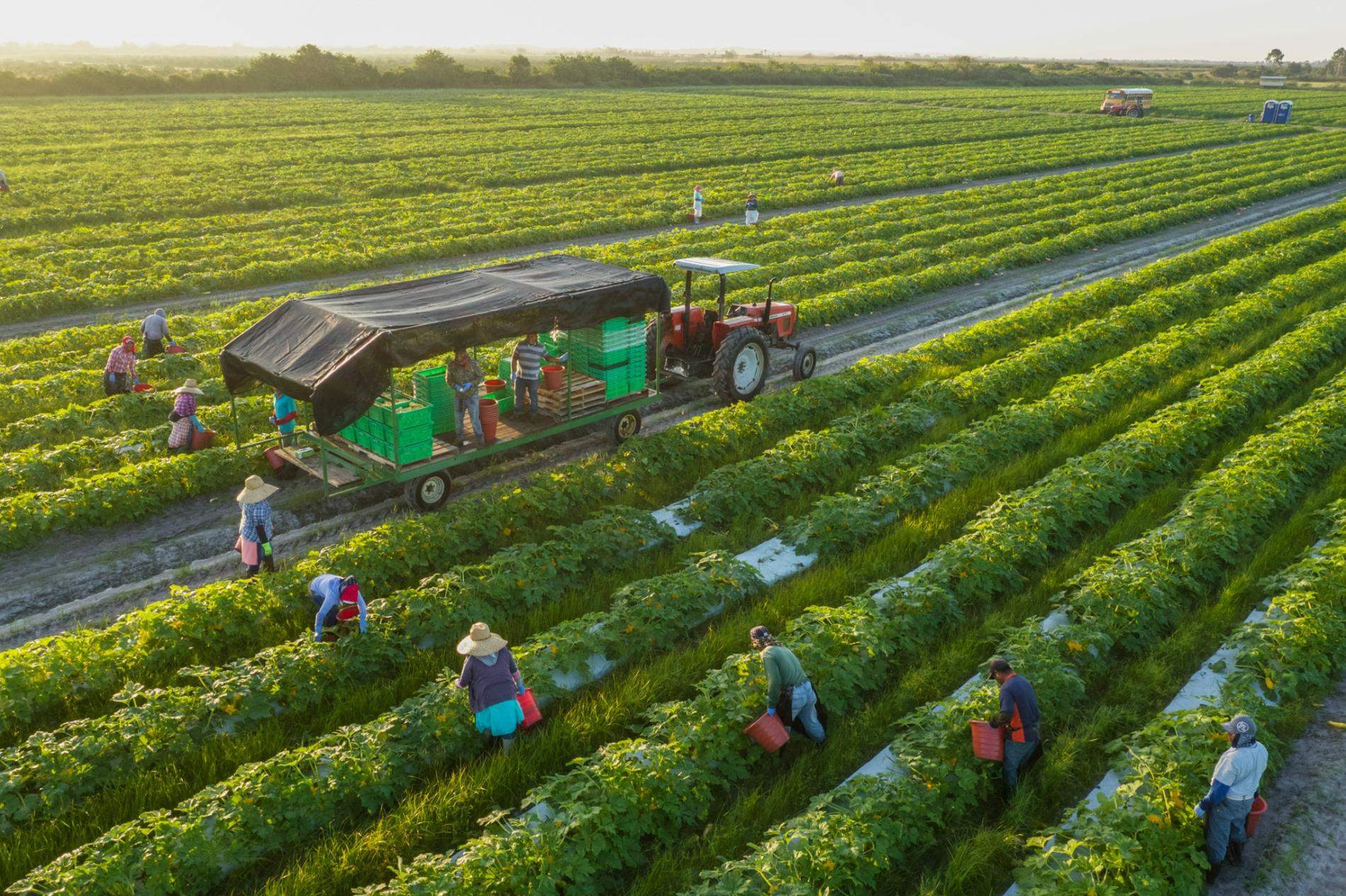Sustainable Farming Practices For Small-Scale Farmers

Vegetable Cultivation in The Field– In India, Farming Info
Vegetable cultivation plays a vital role in the agricultural landscape of India. With its diverse climate and fertile soil, India offers ideal conditions for different types of vegetables to thrive. The abundance of vegetables not only sustains the country's population but also contributes to its economy. In this article, we will delve into the world of vegetable cultivation in India, providing valuable farming information and insights.
India is renowned for its agricultural practices, and vegetable cultivation is no exception. The country boasts a rich tradition of agriculture, with farmers employing various techniques to cultivate vegetables in the field. From the northern plains to the southern hills, vegetable cultivation is widespread, meeting the dietary needs of millions of Indians.
What is
Vegetable cultivation involves the deliberate and systematic process of growing vegetables for consumption or commercial purposes. It requires meticulous planning, diligent care, and effective management to ensure successful harvests. Farmers must consider several factors, such as soil health, water availability, climate conditions, pest control, and market demand, when engaging in vegetable cultivation.
Ideas For
If you are interested in venturing into vegetable cultivation, here are some useful ideas to get you started:
- Select the right variety: Choosing the appropriate vegetable variety based on your soil type, climate, and market demand is crucial.
- Prepare the soil: Conduct soil testing to determine its nutrient composition. Make necessary amendments to create a conducive environment for plants.
- Plan the sowing schedule: Optimize your vegetable cultivation by following a suitable sowing calendar. This ensures that your crops grow in accordance with the prevailing weather conditions.
- Implement irrigation techniques: Depending on the availability of water resources, explore various irrigation methods such as drip irrigation, sprinkler irrigation, or traditional methods like canals or wells.
- Adopt organic farming practices: Embrace organic methods to minimize the usage of chemical fertilizers and pesticides. This reduces environmental impact and promotes healthy produce.
Recommendations For
For those already engaged in vegetable cultivation, here are some recommendations to further enhance your farming practices:
- Implement crop rotation: Rotate your crops annually to prevent soil nutrient depletion and minimize pest and disease incidences.
- Monitor pest and disease outbreaks: Regularly inspect your crops for any signs of pests or diseases. Take immediate action to prevent further damage and employ organic pest control methods whenever possible.
- Invest in modern technologies: Explore the use of modern tools and technologies available for vegetable cultivation, such as precision farming, greenhouse cultivation, or hydroponics.
- Establish market linkages: Strengthen your market connections to ensure a steady demand for your produce. Consider cooperating with local businesses, restaurants, or farmers' markets to sell your vegetables directly.
- Stay updated on agricultural trends: Keep yourself informed about the latest advancements and innovations in the field of vegetable cultivation. Attend workshops, conferences, or webinars to expand your knowledge and network with industry experts.
Listicle of
Here is a listicle of essential tips for successful vegetable cultivation:
- Properly space your crops to allow for healthy growth and prevent overcrowding.
- Regularly weed your fields to eliminate competition and ensure optimal nutrient absorption by vegetables.
- Monitor and manage soil moisture to avoid under or overwatering your crops.
- Protect your plants from extreme weather conditions by using appropriate shelter or shade structures.
- Utilize organic fertilizers to enhance soil fertility and promote sustainable farming practices.
- Integrate cover crops into your cultivation plan to improve soil structure and prevent erosion.
- Practice proper waste management, including composting vegetable waste for future use as organic fertilizer.
- Collaborate with neighboring farmers to share resources, knowledge, and experiences.
- Engage in continuous learning and education to stay updated on new techniques and technologies.
- Always prioritize the health and well-being of your crops, and maintain a proactive approach to pest and disease control.
Question & Answer
Q: What are some common challenges faced in vegetable cultivation?
A: Some common challenges in vegetable cultivation include pest and disease management, unpredictable weather patterns, market fluctuations, and labor-intensive activities such as weeding and harvesting.
Q: Is organic vegetable cultivation more profitable?
A: While organic vegetable cultivation may require additional effort and management, it often commands a higher price in the market. Growing consumer demand for organically grown produce presents ample opportunities for farmers to enhance their profitability.
Q: How important is water management in vegetable cultivation?
A: Water management is crucial in vegetable cultivation as it directly affects crop growth and yield. Insufficient or excessive watering can lead to stunted growth, wilted plants, and decreased productivity. Employing efficient irrigation methods and effectively managing water resources are essential for successful cultivation.
Summary
Vegetable cultivation in India is a thriving sector that contributes significantly to the country's food security and economic growth. With meticulous planning, adoption of sustainable practices, and continuous learning, farmers can ensure successful harvests and meet the growing demand for fresh, nutritious vegetables. Whether you are a new or experienced farmer, these insights into vegetable cultivation in India provide valuable information to enhance your farming endeavors.
Disclaimer: The data used in this article is solely for informational purposes and does not represent any endorsement or promotional intent.
Post a Comment for "Sustainable Farming Practices For Small-Scale Farmers"